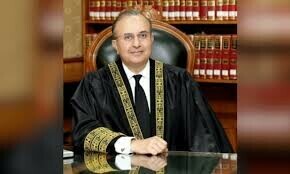WASHINGTON: Republican lawmakers berated US President Barack Obama on Sunday for releasing five Taliban prisoners in exchange for a US soldier, claiming that the bargain had created a new incentive for capturing Americans.
Also, some media reports suggested that the soldier, Sergeant Bowe Bergdahl, had apparently defected to the Taliban in June 2009 because he was unhappy with the war.
“Our terrorist adversaries now have a strong incentive to capture Americans,” said Senator James Inhofe and Congressman Howard McKeon in a statement issued after Sgt Bergdahl’s release on Saturday. “That incentive will put our forces in Afghanistan and around the world at even greater risk.”
Senator John McCain, the 2008 Republican presidential candidate, said the five Taliban prisoners released by the US were dangerous terrorists who might resume their activities once they returned to Afghanistan.
“These particular individuals are hardened terrorists who have the blood of Americans and countless Afghans on their hands,” said Senator McCain, who himself was a prisoner of war in Vietnam.
US Defence Secretary Chuck Hagel, however, defended the bargain, saying that worrying intelligence reports about Sgt Bergdahl’s safety and health had persuaded the government to conclude the deal with the help of the Qatari government.
“It was our judgment that if we could find an opening and move very quickly, we needed to get him out of there, essentially to save his life,” he said.
Top on the list of the released prisoners is Mullah Mohammed Fazl, the former deputy defence minister of the Taliban. The 47-year old was arrested from the Kunduz province in 2001 and was brought to Guantanamo in January 2002. He was kept in extrajudicial detention and no specific charges were brought against him.
The second prisoner released from Guantanamo is Khairullah Said Wali Khairkhwa, a senior Taliban commander and former governor of Herat. Khairullah was one of the original Taliban members who launched the movement in 1994 and also served as the Taliban’s minister of foreign affairs’ spokesman, a deputy interior minister and the minister for information. He arrived at Guantanamo on May 1, 2002.
The third prisoner, Mullah Abdul Haq Wasiq, is well-respected by the Taliban as a religious leader. The Karzai government also considered him a moderate and demanded his release. He arrived at the Guantanamo detention camp in January 2001.
Mullah Norullah Noori was the Taliban governor of Balkh and also had cordial relations with Gen Rashide Dostum. He reportedly arranged a peaceful surrender of the Taliban fighters to Gen Dostum’s Northern Alliance in 2001. He arrived at the Guantanamo prison on Oct 28, 2002.
Mohammed Nabi Omari, the fifth prisoner, was not only a senior Taliban commander but had also admitted to working for Al Qaeda,
Published in Dawn, June 2nd, 2014















































